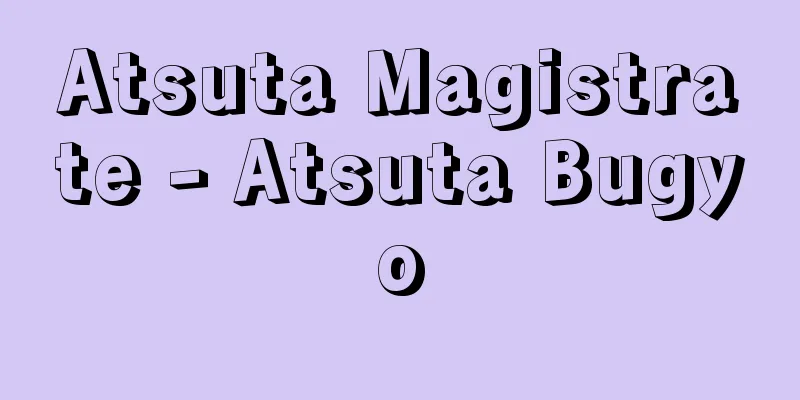Lockout - Lockout (English spelling)

|
Lockout is a countermeasure taken by employers against labor disputes, and refers to the closure of a workplace. It is also called a factory shutdown. Lockouts used to be carried out by firing all workers and barring them from the factory in order to destroy the solidarity of the workers and break up the labor dispute. However, today, the Constitution guarantees the right to strike to workers, not to employers, so such aggressive lockouts are not permitted. That being said, since the Constitution allows new labor-management relations to be formed through the confrontation of labor-management power, it cannot be considered that employers are prohibited from engaging in any countermeasures against labor disputes. They are permitted only to the extent that they do not deny the workers' right to strike, that is, to the extent that it is necessary to counter the workers' labor disputes after they have begun. For example, even in cases where the union is aiming to achieve the same effect as a full-scale strike by minimizing wage losses, such as sabotage or partial strikes (strikes carried out by some union members), only partial lockouts are permitted in principle. However, if a partial strike would cause greater damage than a full strike and would seriously undermine the equity between labor and management, a full lockout would also be justified. A lockout cannot be established by merely declaring or notifying the same, but rather by excluding workers from the factory, or, if that is not possible, by cutting off the power supply to halt operations. If a lockout is valid, the employer is relieved of the obligation to pay wages during that period. [Mikio Yoshida] "Reexamination of the Lockout Doctrine" by Kiyonobu Asai (1985, Horitsu Bunkasha) [Reference] |Source: Shogakukan Encyclopedia Nipponica About Encyclopedia Nipponica Information | Legend |
|
労働者の争議行為に対して使用者の行う争議対抗行為の一つで、作業所閉鎖のこと。工場閉鎖ともいう。ロックアウトは、かつては労働者の団結を破壊し争議行為を切り崩すために、労働者を全員解雇し工場から閉め出すという形で行われた。しかし、今日では、憲法で争議権が保障されているのは労働者であって使用者ではないから、このような攻撃的なロックアウトは認められない。そうはいっても、憲法が労使の力の対抗関係を通じて新たな労使関係を形成することを認めている以上、使用者にいっさいの争議対抗行為が禁止されているとは考えられない。認められるのは、労働者の争議権を否定しない範囲内で、つまり、労働者が争議行為を開始したあとから、それに対抗する必要性のある限りである。たとえば、サボタージュや部分スト(組合員の一部に行わせるストライキ)のように、組合側が賃金喪失を最小限に抑えて全面ストと同様な効果をねらっている場合も、原則として部分ロックアウトが認められるにすぎない。ただし、部分ストによって全面スト以上に多大な損害をもたらし、労使間の衡平を著しく損なうような場合は、全面ロックアウトも正当である。 ロックアウトは、単にその旨の宣言や通告だけでは成立せず、労働者を工場から排除するなり、それができない場合も操業を停止するために電源を切断するなどの行為が必要と考えられる。なお、ロックアウトが有効に成立すれば、使用者はその期間中の賃金支払い義務を免れる。 [吉田美喜夫] 『浅井清信著『ロックアウト法理の再検討』(1985・法律文化社)』 [参照項目] |出典 小学館 日本大百科全書(ニッポニカ)日本大百科全書(ニッポニカ)について 情報 | 凡例 |
<<: Logwood (English spelling) Heamatoxylon campechianum; logwood
Recommend
Tamura-shi
A samurai family from the Sengoku period to the e...
Alcohol-induced dementia
... When organic, permanent damage occurs to the ...
Dehydrogenase - Dassuisokoso
Also called dehydrogenase. A type of oxidoreducta...
Hydrogen Azide - Azikasuiso
HN3 (43.03). Also known as hydronitrile acid and ...
Italian notation - Italian notation
...By the end of the 14th century, technically ad...
Ilyin (English spelling) M. Ильин/M. Il'in
A Soviet children's author. His real name was...
《Blowin' in the Wind》 - Blown by the wind
…Born in Minnesota to Jewish parents. In high sch...
Decroux, É (English spelling) DecrouxE
Mime is a form of entertainment in which the perf...
Les Combarelles
A Paleolithic site in the Dordogne department in s...
Easy stage - Gakudan
…(1) In modern times, gagaku is used as the small...
Elytis, Odysseus
Born: November 2, 1911, Heraklion, Crete [Died] Ma...
Polar cap absorption - Polar cap absorption
A phenomenon in which high-energy particles caused...
Ruzicka
A Swiss organic chemist of Slavic descent, born i...
Student Social Sciences Association - Student Social Sciences Association
A nationwide organization of social thought resea...
Gāhadavāla (English spelling)
…They had a strong sense of pride as warriors, an...
![Tomioka [city] - Tomioka](/upload/images/67cc5aebe2cb5.webp)








